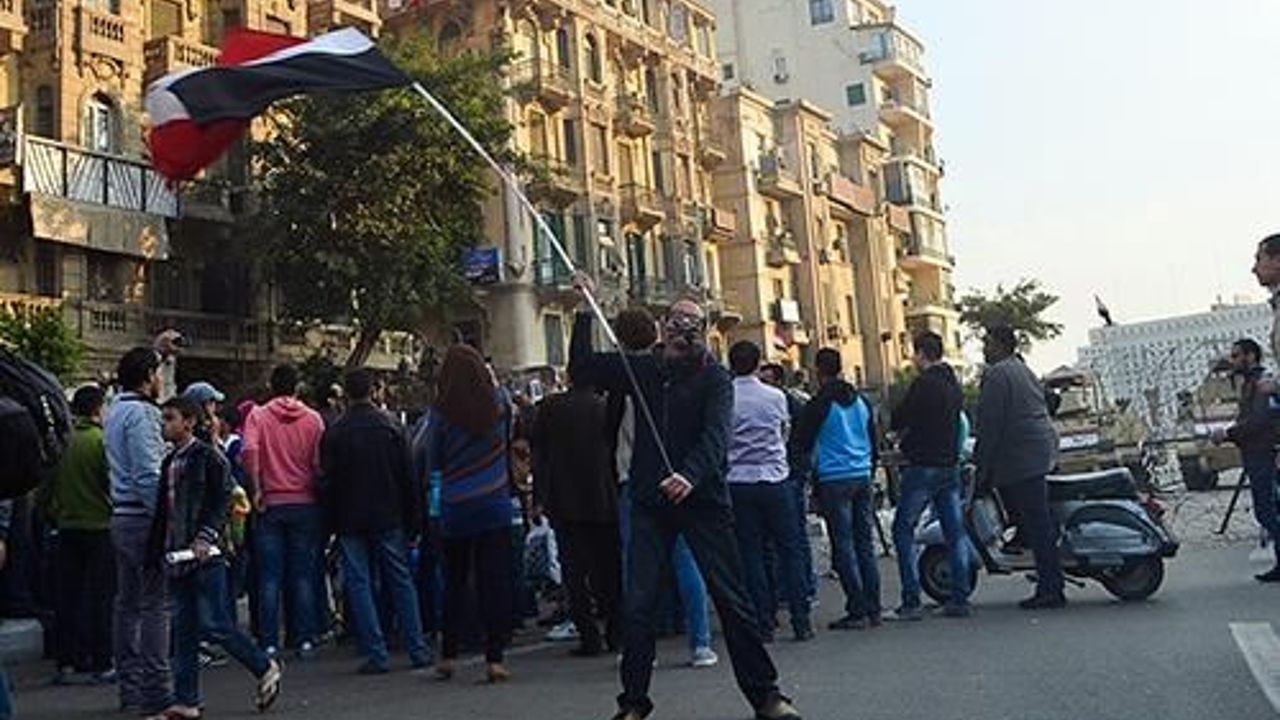Egypt police teargas anti-Mubarak university protests
World |
Egyptian security forces on Sunday used teargas to disperse student demonstrations that took off on several university campuses across the country to denounce a court ruling that exonerated ousted president Hosni Mubarak from the charges of ordering the killing of protestors in early 2011.

Font Size:
Police forces used teargas against demonstrations that erupted in Al-Azhar University in eastern Cairo and Minya University in Upper Egypt, and arrested seven protestors, according to student sources.
Moreover, similar demonstrations broke out in the universities of Alexandria, Beni Sueif, Fayoum, Suez, Mansoura, Zagazig and Menoufiya.
On Saturday, Egyptian police used teargas to disperse hundreds of people who gathered near Cairo's iconic Tahrir Square to protest the court verdict. Two Egyptian protestors were killed and nine others wounded in the violence, according to Egypt's Health Ministry.
The court cleared Mubarak, ex-interior minister Habib al-Adly and six former top security officials of charges of ordering the murder of hundreds of protesters during the 18-day uprising, which ended Mubarak's 30-year rule in early 2011.
The trial judge also cleared Mubarak of corruption charges related to gas exports to Israel.
The verdicts are still subject to appeal.
During Saturday's session, the judge said that trial documents showed that 239 people had been killed in 11 provinces during the January revolution, including 36 people killed in public squares.
He added that 1,588 people had also been injured during the revolution according to the trial documents.
In late 2012, Mubarak and al-Adly were both sentenced to 25 years in prison for ordering the murder of demonstrators during the uprising.
The court later ordered a retrial, however, after the former president's lawyers successfully appealed the sentence.
Anadolu Agency
Moreover, similar demonstrations broke out in the universities of Alexandria, Beni Sueif, Fayoum, Suez, Mansoura, Zagazig and Menoufiya.
On Saturday, Egyptian police used teargas to disperse hundreds of people who gathered near Cairo's iconic Tahrir Square to protest the court verdict. Two Egyptian protestors were killed and nine others wounded in the violence, according to Egypt's Health Ministry.
The court cleared Mubarak, ex-interior minister Habib al-Adly and six former top security officials of charges of ordering the murder of hundreds of protesters during the 18-day uprising, which ended Mubarak's 30-year rule in early 2011.
The trial judge also cleared Mubarak of corruption charges related to gas exports to Israel.
The verdicts are still subject to appeal.
During Saturday's session, the judge said that trial documents showed that 239 people had been killed in 11 provinces during the January revolution, including 36 people killed in public squares.
He added that 1,588 people had also been injured during the revolution according to the trial documents.
In late 2012, Mubarak and al-Adly were both sentenced to 25 years in prison for ordering the murder of demonstrators during the uprising.
The court later ordered a retrial, however, after the former president's lawyers successfully appealed the sentence.
Anadolu Agency
Similar News
Video News

WORLD
26 Mart 2024 - 11:18
Photo News






